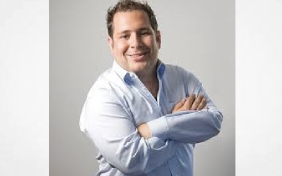Here’s their latest op-ed piece on the president and his engagement or lack thereof with cannabis
It is no secret that the Democratic Party priority for cannabis policy reform is not a priority in the Biden White House. Throughout the 2020 Democratic primary, Joe Biden was the most moderate candidate on this issue. And although his position on cannabis evolved relative to his views as a senator in the 1980s and 1990s, he still remained to the right of most elected Democrats and Democratic voters on cannabis.
Biden is not the only person who is out of step with his party on cannabis reform. Understanding why is important to those who hope to chart a path forward.
It is not terribly surprising that someone with Mr. Biden’s background would oppose cannabis.
As a member of the Silent Generation (Americans born between 1925 and 1944), Mr. Biden belongs to an age cohort that is the most opposed to cannabis reform in the American electorate. According to an April 2021 Pew poll, only 32% of Americans 75 and older supported adult-use cannabis reform. A majority of every other age cohort under 75 support legalization. And while there have been some increases in the Silent Generation’s support for legalization over the past 30 years, it remains the least supportive major demographic group.
At the same time, when you dive into the reasons why opponents of cannabis reform hold that position, those answers are illustrative too. According to a 2015 Pew poll, 73% of legalization opponents say that it “hurts society, [is] bad for individuals” or is a “dangerous, addictive drug.” Those views in particular can resonate with individuals who have experienced a substance use disorder or who have had family members who have had one. That is not to say people with substance abuse disorders or their relatives will inherently oppose legalization, but for some it may provide a lens through which some people consider the issue. And Mr. Biden’s son Hunter’s public struggle with the abuse of different substances is the precise type of experience that leads some people to oppose drug reform.
At the same time, we know that some segment of the population has and will change their mind on cannabis reform. The key to that change—like on any policy issue—involves framing the issue in a specific, appealing way that connects with a person or a set of people. One manner in which legalization advocates have been successful in framing the argument involves science. Research has effectively demonstrated the faultiness of the so-called ‘gateway effect’ theory that claims cannabis use drives individuals to using harder drugs. At the same time, research into the relationship between cannabis legalization and substance use disorders is mixed at best. And while some research does demonstrate increases in cannabis use disorders or other disorders coinciding with legalization, cannabis reform advocates point to the ability to tax legal cannabis and use portions of that revenue for enhanced mental health and addiction services.
Read their full article at https://www.brookings.edu/blog/fixgov/2021/05/24/why-has-president-biden-been-slow-to-embrace-cannabis-reform/
















